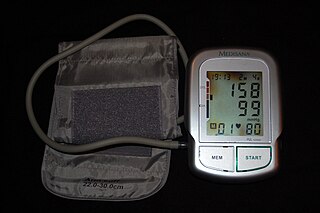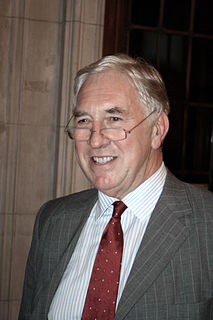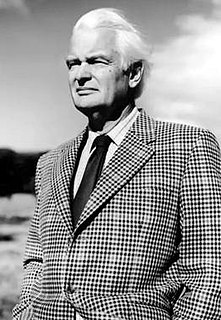Related Research Articles

Coronary artery disease (CAD), also called coronary heart disease (CHD), ischemic heart disease (IHD), or simply heart disease, involves the reduction of blood flow to the heart muscle due to build-up of plaque (atherosclerosis) in the arteries of the heart. It is the most common of the cardiovascular diseases. Types include stable angina, unstable angina, myocardial infarction, and sudden cardiac death. A common symptom is chest pain or discomfort which may travel into the shoulder, arm, back, neck, or jaw. Occasionally it may feel like heartburn. Usually symptoms occur with exercise or emotional stress, last less than a few minutes, and improve with rest. Shortness of breath may also occur and sometimes no symptoms are present. In many cases, the first sign is a heart attack. Other complications include heart failure or an abnormal heartbeat.

Hypertension, also known as high blood pressure (HBP), is a long-term medical condition in which the blood pressure in the arteries is persistently elevated. High blood pressure typically does not cause symptoms. Long-term high blood pressure, however, is a major risk factor for stroke, coronary artery disease, heart failure, atrial fibrillation, peripheral arterial disease, vision loss, chronic kidney disease, and dementia.

Heart failure (HF), also known as congestive heart failure (CHF), (congestive) cardiac failure (CCF), and decompensatio cordis, is when the heart is unable to pump sufficiently to maintain blood flow to meet the body tissues' needs for metabolism. Signs and symptoms of heart failure commonly include shortness of breath, excessive tiredness, and leg swelling. The shortness of breath is usually worse with exercise or while lying down, and may wake the person at night. A limited ability to exercise is also a common feature. Chest pain, including angina, does not typically occur due to heart failure.
In academic publishing, a retraction is the action by which a published paper in an academic journal is removed from the journal. Online journals typically remove the retracted article from online access.
Antihypertensives are a class of drugs that are used to treat hypertension. Antihypertensive therapy seeks to prevent the complications of high blood pressure, such as stroke and myocardial infarction. Evidence suggests that reduction of the blood pressure by 5 mmHg can decrease the risk of stroke by 34%, of ischaemic heart disease by 21%, and reduce the likelihood of dementia, heart failure, and mortality from cardiovascular disease. There are many classes of antihypertensives, which lower blood pressure by different means. Among the most important and most widely used medications are thiazide diuretics, calcium channel blockers, ACE inhibitors, angiotensin II receptor antagonists (ARBs), and beta blockers.

Left ventricular hypertrophy (LVH) is thickening of the heart muscle of the left ventricle of the heart, that is, left-sided ventricular hypertrophy.

The American College of Cardiology (ACC), based in Washington, D.C., is a nonprofit medical association established in 1949. It bestows credentials upon cardiovascular specialists who meet its qualifications. Education is a core component of the college, which is also active in the formulation of health policy and the support of cardiovascular research.

Sir Magdi Habib Yacoub, is an Egyptian-British retired professor of cardiothoracic surgery at Imperial College London, best known for his early work in repairing heart valves with surgeon Donald Ross, adapting the Ross procedure, where the diseased aortic valve is replaced with the person's own pulmonary valve, devising the arterial switch operation (ASO) in transposition of the great arteries, and establishing the heart transplantation centre at Harefield Hospital in 1980 with a heart transplant for Derrick Morris, who at the time of his death was Europe's longest-surviving heart transplant recipient. Yacoub subsequently performed the UK's first combined heart and lung transplant in 1983.

Hypertensive heart disease includes a number of complications of high blood pressure that affect the heart. While there are several definitions of hypertensive heart disease in the medical literature, the term is most widely used in the context of the International Classification of Diseases (ICD) coding categories. The definition includes heart failure and other cardiac complications of hypertension when a causal relationship between the heart disease and hypertension is stated or implied on the death certificate. In 2013 hypertensive heart disease resulted in 1.07 million deaths as compared with 630,000 deaths in 1990.

Percutaneous coronary intervention (PCI) is a procedure used to treat narrowing of the coronary arteries of the heart found in coronary artery disease. The process involves combining coronary angioplasty with stenting, which is the insertion of a permanent wire-meshed tube that is either drug eluting (DES) or composed of bare metal (BMS). The stent delivery balloon from the angioplasty catheter is inflated with media to force contact between the struts of the stent and the vessel wall, thus widening the blood vessel diameter. After accessing the blood stream through the femoral or radial artery, the procedure uses coronary catheterization to visualise the blood vessels on X-ray imaging. After this, an interventional cardiologist can perform a coronary angioplasty, using a balloon catheter in which a deflated balloon is advanced into the obstructed artery and inflated to relieve the narrowing; certain devices such as stents can be deployed to keep the blood vessel open. Various other procedures can also be performed.

Perindopril is a long-acting ACE inhibitor used to treat high blood pressure, heart failure, or stable coronary artery disease in form of perindopril arginine or perindopril erbumine (Aceon). According to the Australian government's Pharmaceutical Benefits Scheme website, based on data provided to the Australian Department of Health and Ageing by the manufacturer, perindopril arginine and perindopril erbumine are therapeutically equivalent and may be interchanged without differences in clinical effect. However, the dose prescribed to achieve the same effect differs due to different molecular weights for the two forms. A prodrug, perindopril is hydrolyzed to its active metabolite, perindoprilat, in the liver.

Ivabradine, sold under the brand name Procoralan among others, is a medication used for the symptomatic management of stable heart-related chest pain and heart failure not fully managed by beta blockers.

A myocardial infarction (MI), commonly known as a heart attack, occurs when blood flow decreases or stops to a part of the heart, causing damage to the heart muscle. The most common symptom is chest pain or discomfort which may travel into the shoulder, arm, back, neck or jaw. Often it occurs in the center or left side of the chest and lasts for more than a few minutes. The discomfort may occasionally feel like heartburn. Other symptoms may include shortness of breath, nausea, feeling faint, a cold sweat or feeling tired. About 30% of people have atypical symptoms. Women more often present without chest pain and instead have neck pain, arm pain or feel tired. Among those over 75 years old, about 5% have had an MI with little or no history of symptoms. An MI may cause heart failure, an irregular heartbeat, cardiogenic shock or cardiac arrest.
Management of heart failure requires a multimodal approach. It involves a combination of lifestyle modifications, medications, and possibly the use of devices or surgery.

Philip Alexander Poole-Wilson FRCP, FESC, FACC, FMedSci was a British academic cardiologist of international reputation who had particular interest in the management of heart failure. His research helped to identify the cellular mechanisms behind heart failure and was also important in improving treatment for patients. He was instrumental in raising the profile of heart failure as a major public health problem.
Mandeep R. Mehra is The William Harvey Distinguished Chair in Advanced Cardiovascular Medicine and a professor of medicine at Harvard Medical School. He is the medical director of the Brigham Heart and Vascular Center in Boston, Massachusetts, and specializes in advanced heart failure, mechanical circulatory support and cardiac transplantation.
Sharon Ann Hunt is a cardiology professor and Director of the Post Heart Transplant Programme in Palo Alto, California and is affiliated with Stanford University Medical Center, professionally known for her work in the care of patients after heart transplantation.

Stefan D. Anker is Head of Field “Tissue Homeostasis and Cachexia" at Charité University, Berlin, Germany. Previously, he was Professor of Innovative Clinical Trials at University Medical Center Göttingen in Germany. The main focus of the Innovative Clinical Trials department was research in the field of chronic heart failure, including the development and clinical testing of new therapies.

The International Society for Heart and Lung Transplantation (ISHLT), established in 1981, is a professional organization committed to research and education in heart and lung disease and transplantation. It holds annual scientific meetings and publishes The Journal of Heart and Lung Transplantation. It also holds the largest registry of heart and lung transplant data in the world, of which one former director was Michael Peter Kaye (1983–1993).

Sir Donald Hamilton Irvine was a British general practitioner (GP) who was president of the General Medical Council (GMC) between 1995 and 2002, during a time when there were a number of high-profile medical failure cases in the UK, including the Alder Hey organs scandal, the Bristol heart scandal and The Shipman Inquiry. He transformed the culture of the GMC by setting out what patients could expect of doctors and is credited with leading significant changes in the regulation of professional medicine and introducing the policy of professional revalidation in the UK.
References
- ↑ "HFSA Website".
- ↑ "PAN Foundation - Heart Failure Society of America". panfoundation.org. Retrieved 12 November 2018.
- ↑ Mebazaa, Alexandre; Gheorghiade, Mihai; Zannad, Faiez; Parrillo, Joseph E. (2009). Acute Heart Failure. Springer Science & Business Media. p. 5. ISBN 9781846287817.
- ↑ Anderson, Kelley M. (2015). The Advanced Practice Nurse Cardiovascular Clinician. Springer Publishing Company. p. 681. ISBN 9780826138576.
- ↑ Wilcox, Jane; Yancy, Clyde W (2018). "Stopping medication for heart failure with improved ejection fraction". The Lancet. 0 (10166): 8–10. doi: 10.1016/S0140-6736(18)32825-3 . ISSN 0140-6736. PMID 30429051.
- ↑ Styles, Steve (6 November 2018). "What Do Heart Failure Patients Really Want, and Do Doctors Get it?". Medscape . Retrieved 12 November 2018.
- ↑ Administrator. "Dr Mandeep Mehra". www.mgims.ac.in. Retrieved 12 November 2018.